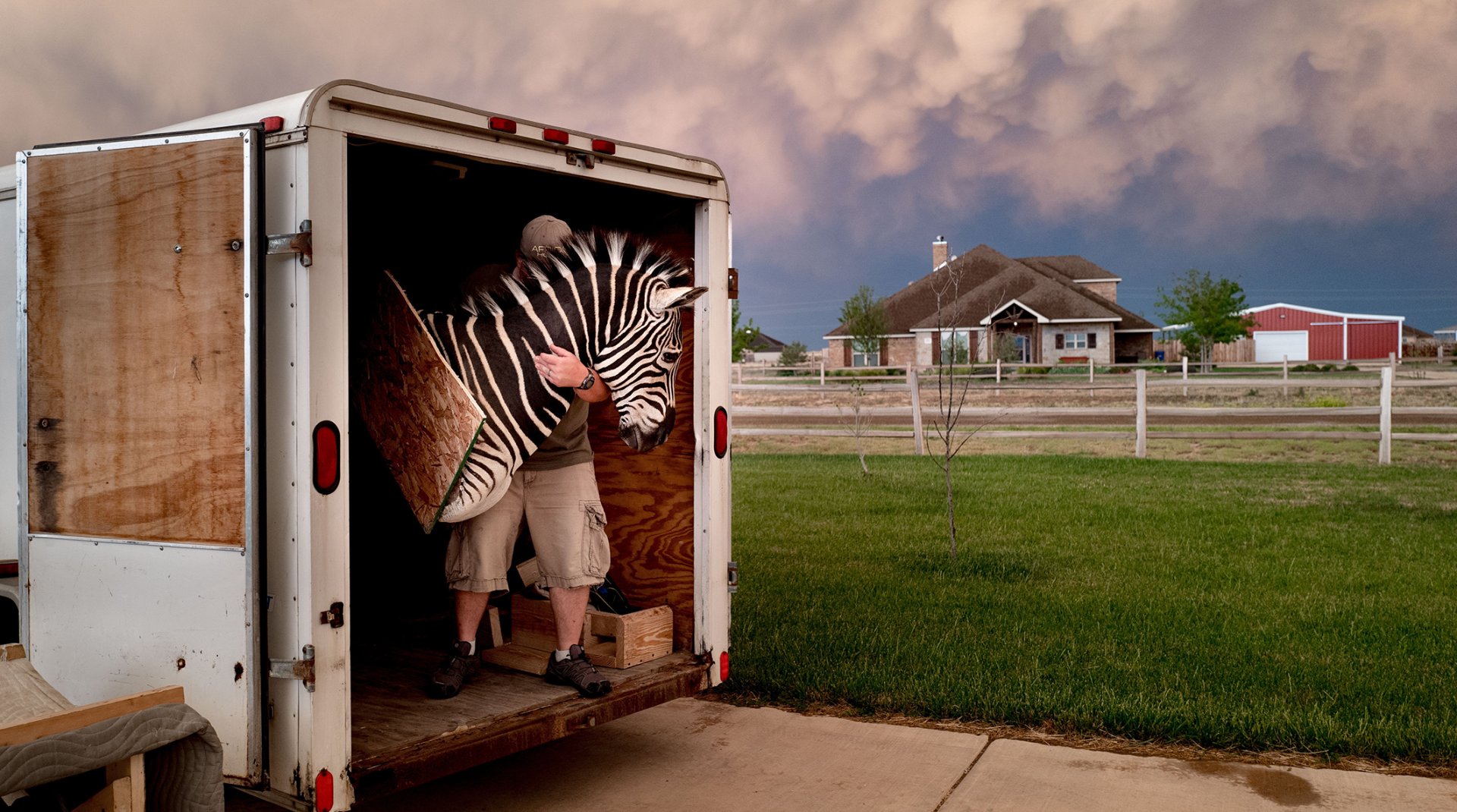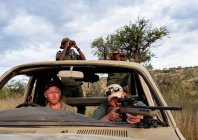
Sugar Moon
Mélanie Wenger
Le Figaro Magazine & National Geographic
In 2018 Mélanie Wenger met Erik Grimland at a convention organized by a pro-hunting lobby in Texas. She had spent years documenting trophy hunting and its role in wildlife conservation in Africa, and wanted to embark on a new chapter devoted to the exotic animal business in the United States. Here was a bid to understand the complex world where tradition, consumerism and the male of the species coincide.
Over the course of three years Mélanie Wenger covered Erik Grimland and his circle of hunters. Erik Grimland had hunted since he was a child, as the son a hunting father and an anti-hunting mother. He had been a police officer but changed to work in hunting and taxidermy. The man is Texan through and through, a cowboy at heart, and he offers a view of a world rarely covered by the media, opening a window onto rural America in the deep south where there was so much anger that helped bring Donald Trump to the presidency in 2016.
Preview


The report ranges from Texan ranches where wild animals wander in semi-freedom to the bush in Africa, the holy grail of every hunter, where some have spent thousands to fulfil their dreams. It does not attempt to justify hunting, nor does it set out to condemn it; rather it endeavors to understand the complexities of the hunt as practiced, and show the detail of truths and contradictions.
Advocates of hunting are quite categorical: the legal killing of an animal is a way of saving some species and of preserving vast areas of natural land, protecting it from the threats of population growth and rampant urbanization. That argument is met with outrage by animal rights groups and certain ecologists, but the debate raises a number of questions.
Can hunting help protect both wildlife and the environment, and if so, how? The income from trophy hunting in both Africa and the United States is considerable, so where does the money end up, and does it always help local communities as the hunters claim it does? How is it used by the different institutions? These questions have been raised over recent decades, yet man has been hunting since time immemorial, from the time when hunting meant subsistence and survival for humans. In many civilizations it symbolizes strength, virility and power, but now, in the tumult of the 21st century, is hunting fated to disappear, remaining solely as a relic, as a trophy of a time long past?
Vincent Jolly
Feature reporter, Le Figaro Magazine


